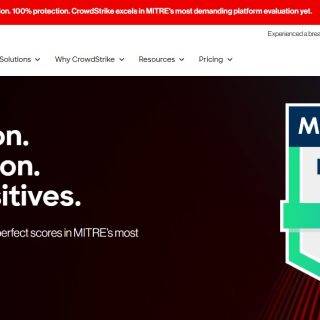
In the fast-evolving world of cybersecurity, professionals responsible for keeping data safe are buckling under the weight of growing threats. Cybersecurity vendors—those meant to alleviate this pressure—are often making things worse, piling additional tasks onto already overstretched teams. A recent study highlights that nearly a quarter of security heads are actively seeking new roles due to stress and burnout, with many others open to leaving. The overwhelming reason? An unsustainable workload driven by the ever-growing complexities of cyber threats.
The cybersecurity industry is at a tipping point. As the threat landscape evolves with more sophisticated ransomware, malware, and even AI-assisted attacks, IT managers are working longer hours just to keep up. Nearly every CISO (98%) reports working beyond their contracted hours, with some putting in over 16 extra hours each week.
Cybersecurity Vendors Are Failing IT Managers
Instead of providing solutions that ease the workload, many vendors are making it worse. The increasing complexity of cybersecurity tools, combined with an endless flood of “insights” and data, puts the burden on IT teams to analyze and investigate every potential threat. One glaring example is how IT managers are expected to assess unknown executable files that land in their network. Vendors push this responsibility onto them, requiring IT teams to spend time analyzing files rather than focusing on their core tasks.
The reality is simple: breaches happen because something malicious is allowed to execute. But how can IT managers be expected to know if a file is harmful, especially when they lack the resources or time to vet each one? Instead of providing definitive answers, many cybersecurity vendors pass the buck, leaving IT teams to manage the risk. In a world where every second counts, this is a recipe for burnout.
Burnout in Cybersecurity Reaching New Highs
The result? Burnout. With stress levels at an all-time high, over 90% of IT managers cite the constant demands as their main reason for wanting to quit. Many are juggling the increased complexity of defending against sophisticated attacks while also managing networks and user support. This workload is unsustainable, and it’s driving top talent out of the industry at a time when they are needed most.
The pressure is further compounded by the constant influx of new cyberthreats. Nearly 42% of security professionals are concerned about attackers using AI, while others cite data exfiltration and ransomware as top stressors. To cope, some turn to unhealthy outlets like alcohol or drugs, with 45% of security heads admitting to such coping mechanisms.
The Responsibility of Cybersecurity Vendors
Cybersecurity vendors should be making life easier, not harder, for IT managers. Rather than overwhelming them with data, vendors need to step up and provide trusted verdicts on every executable file. It’s time to stop forcing IT managers to play detective with unknown files. Vendors must take responsibility for ensuring that every file that enters a network is either greenlit as safe or blocked as harmful. By doing so, they can give IT professionals the time and peace of mind they need to do their jobs effectively.
As it stands, many vendors rely on vague probabilities and incomplete insights, pushing the responsibility back onto the IT department. This outdated approach is failing the professionals it’s supposed to protect.
Xcitium: A Vendor That Does the Job for You
Xcitium is breaking the mold by taking full responsibility for every file that enters a network. Their approach is simple: they don’t leave it up to IT managers to analyze every unknown file. Instead, they offer a trusted verdict for each file, freeing up IT teams from the impossible task of determining whether an unknown executable is safe.
Xcitium’s technology doesn’t just wait for files to be analyzed before providing security. Their patented kernel-level API virtualization allows unknown files to run, but instead of permitting functions that can cause damage—such as write privileges to the hard drive—Xcitium provides virtualized versions of these functions. This ensures that the file continues to operate without interrupting user flow, but if the file turns out to be malicious, all potential damage is contained as “virtual” damage.
3-Tech Stack Advantage: Beyond Legacy Solutions
While traditional cybersecurity vendors rely on two tech stacks—Prevention and Detection—Xcitium takes it a step further with three distinct tech stacks. These include:
- Prevention – NGAV (Next-Generation Antivirus): Stops both known and unknown threats by using machine learning and behavioral analysis, rather than relying on traditional signature-based methods.
- Detection – EDR (Endpoint Detection and Response): Continuously monitors endpoints and detects suspicious activity in real-time, providing visibility into potential threats that may have slipped through preventive measures.
- Isolation: The real differentiator, Xcitium’s isolation technology virtualizes critical system functions that are needed by malicious files to cause damage. These virtualized components include:
- File System – Prevents unauthorized file changes or access.
- Registry – Protects critical registry entries.
- Kernel Object – Controls access to sensitive Kernel objects.
- Service – Prevents unauthorized service-related changes or calls.
- DCOM/RPC – Isolates Distributed Component Object Model and Remote Procedure Calls to protect system integrity.
These virtualization components work seamlessly, ensuring that the unknown file operates without causing disruption as well as without posing any threat to the system, because the functions that could cause damage are “virtualized.”
Confidence in Action: MDR with Incident Response at No Extra Cost
Xcitium doesn’t stop at offering superior technology. Unlike legacy vendors who charge for Incident Response (IR) services when a breach occurs, Xcitium is the first cybersecurity company to include Incident Response (IR) at no additional cost. They are so confident in their solution that they don’t charge their customers for IR, trusting their prevention and isolation measures to work effectively.
This means that Xcitium doesn’t just provide Managed Detection and Response (MDR) services—it takes full responsibility for what happens, even if a breach occurs. The result is true peace of mind for IT managers, who no longer have to worry about hidden costs or being blamed for something outside their control.
Conclusion: It’s Time for Vendors to Step Up
The days of pushing responsibilities onto IT managers need to end. As cyberthreats become more complex, the vendors providing cybersecurity solutions must evolve to meet these challenges. It’s no longer acceptable to add layers of work for IT teams to decipher. Instead, vendors need to provide clear, trusted verdicts on every file, ensuring that IT professionals can focus on protecting their networks rather than analyzing every potential threat.
Xcitium leads the charge by making cybersecurity simpler, more effective, and less burdensome. It’s time for vendors to either step up or step aside. The future of cybersecurity belongs to those who take full responsibility for protecting their customers—not by giving them more work to do but by offering real solutions that take the load off their shoulders.
In short, IT managers can’t keep doing cybersecurity vendors’ jobs. Vendors like Xcitium understand this and are stepping up, so IT teams don’t have to.



